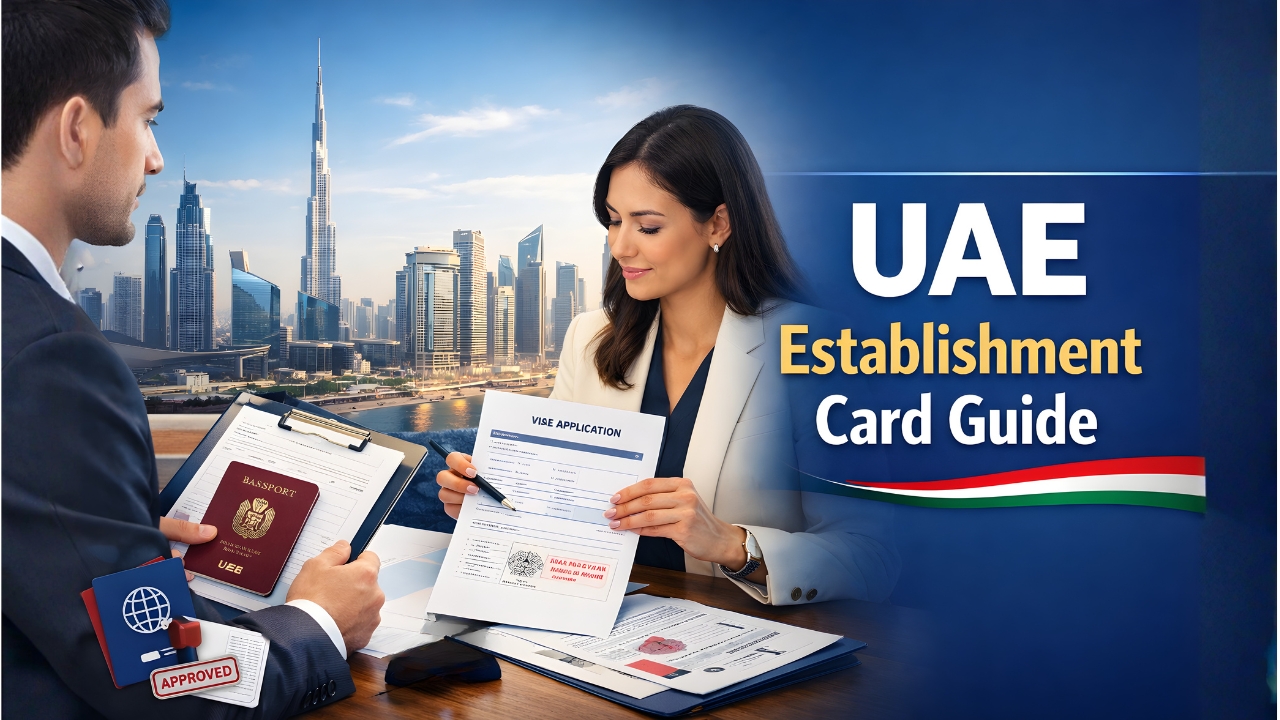Setting up a business in the UAE is an exciting opportunity. With zero personal income tax, a strategic global location, and a business-friendly environment, it’s no surprise that entrepreneurs and startups are increasingly choosing the UAE as their launchpad.
But while the process can be straightforward with the right guidance, a few lesser-known factors can impact your timeline, compliance, and operations. This article covers five essential things you should know before you begin your UAE company setup journey.
1. You don’t have to reside in the UAE, but you may need to visit.
Remote business registration is possible in many UAE free zones. However, some steps in the process, particularly banking-related, often require a physical presence.
Key points to consider:
- Company formation can be handled remotely through a registered business service provider.
- To open a corporate bank account, most banks require the account holder to be physically present at least once.
- Collection of items such as debit cards and cheque books also typically requires an in-person visit.
"Remote setup is possible, but don’t rule out a trip if your business banking depends on it."
Ask your setup consultant about which free zones and banks offer the most remote-friendly options if travel is difficult.

2. Free zone vs. Mainland: Choose based on your business goals.
One of the most important decisions you’ll make early on is registering in a Free Zone or on the Mainland. This choice affects ownership, operational flexibility, and your ability to do business within the UAE.
Free zone advantages:
- 100% foreign ownership
- Simplified and often faster registration process
- Ideal for international trading, tech, or consulting businesses
Limitations:
- Can only trade within the UAE through a local distributor or agent.
- Zone regulations limit office space and visa quotas
Mainland advantages:
- Freedom to operate anywhere in the UAE
- Ability to work directly with local clients and government contracts
- More flexibility in office location and hiring
"Free zones are great for flexibility; mainland setups offer broader market access."
Before choosing, assess your business model, target market, and growth goals. Each setup has benefits depending on your priorities.
3. Opening a business bank account can take time.
Many new business owners are surprised by how detailed and time-consuming the corporate bank account process can be in the UAE. While company registration might be completed in days, banking can take significantly longer.
What to expect:
- A comprehensive review of your business activity and background
- Required documents such as your trade license, Emirates ID (if applicable), company profile, and utility bills
- In-person verification and interviews (in most cases)
Common delays happen due to:
- Vague or unclear business activities
- Missing documentation
- Compliance checks, especially for startups with limited transaction history
"Opening a bank account in the UAE isn’t instant; build a buffer into your timeline."
Some banks specialize in working with new businesses and offer faster onboarding. Your setup advisor can guide you to the right fit.
4. Your business activity determines everything.
Choosing the right business activity is more than just a formality. It defines your licensing, compliance requirements, and operational permissions.
Why this matters:
- You must align your activity with what’s permitted by the Free Zone or mainland authority
- Activities like consulting, trading, tech services, or manufacturing each have different rules
- Certain activities may require additional external approvals from government departments
Example:
Although a marketing consultancy and a digital product company may sound similar, they require completely different setups and licensing categories.
"Your business activity isn’t just a line on a form. It’s the foundation for your license, visa quotas, and future scalability."
If your model includes multiple revenue streams (e.g., consulting + software sales), ensure your license covers everything, or consider a dual-activity license.
5. Yes, there’s still paperwork (and stamps!).
Despite the UAE’s progress in digitization, setting up a business still involves a fair share of traditional paperwork. Expect both digital and hard-copy processes, especially for notarizations and attestations.
Common documentation includes:
- Trade name reservation
- Memorandum of Association (MOA)
- Passport and visa copies
- Tenancy contracts (if required)
- Local Service Agent (LSA) agreements for mainland service-based businesses
Additional notes:
Some documents must be translated into Arabic and legally attested
Turnaround time can vary depending on your chosen setup zone or authority.
"Digital-friendly doesn’t mean paper-free, keep your documents organized and ready."
If your model includes multiple revenue streams (e.g., consulting + software sales), ensure your license covers everything, or consider a dual-activity license.
Set up smart. Scale smarter.
Starting a company in the UAE can be one of the best decisions for your business, but only if you go in informed. By understanding these lesser-known aspects of the setup process, you can avoid delays, stay compliant, and build with confidence.







